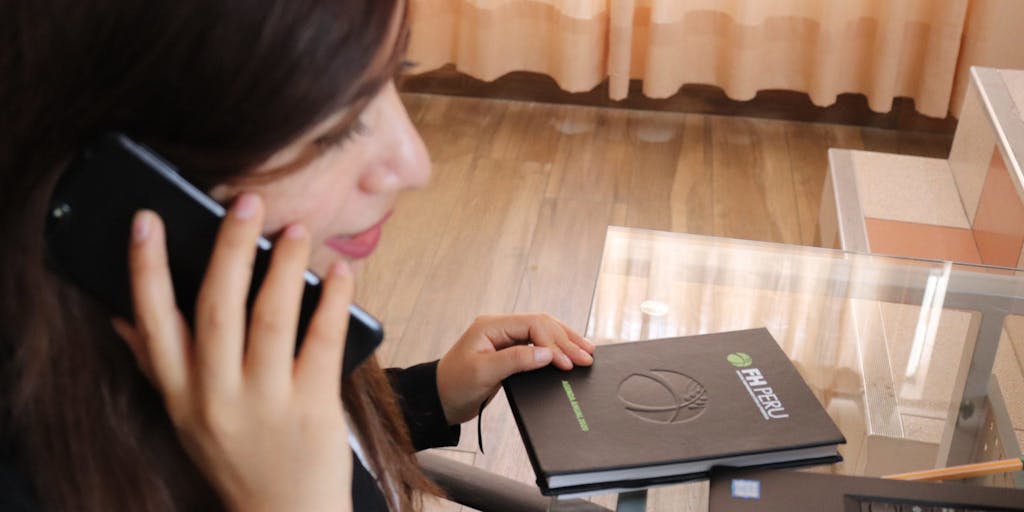For Marta*, a busy mom in one of Lima’s disadvantaged neighborhoods, Food for the Hungry’s COVID-19 hotline is her lifeline.
Peru has been in strict lockdown for months to prevent the spread of coronavirus. Yet recent reports warned that the epidemic is accelerating, despite the preventative measures. Families in FH’s programs are struggling with unimaginable hunger, disease, and psychological stresses. Mothers like Marta, who is one of FH’s mother leader volunteers, feel deep emotional pain. And there’s no one to hear their pain.
Marta’s husband can’t get stable work, so right now, the family survives on what she earns peeling garlic. Her sisters and brothers-in-law were sick, but she couldn’t help them due to the lockdown. Her powerlessness to help emotionally drained her. “It feels so bad. This week I have been very down, but I have to recover for my children and pretend that I am fine,” Marta said.
Tearing Down Barriers
In the early days after the COVID-19 lockdown began, FH staff maintained contact with parents and community leaders via cell phone. FH Peru leadership heard so many stories of pain and emotional distress that they began to think about how they could respond. That’s how the Friendly Voices COVID-19 hotline was born.
In partnership with a local nonprofit in Lima named “Paz y Esperanza” (Peace and Hope), FH launched a free hotline service. First, FH developed a two-week training curriculum for FH staff who would serve as counselors via cell phone. Within the first week of operation, the hotline counselors received 48 calls.
Callers simply need someone to listen, to help them work through their problems. Economic stresses, hunger, and illness are plaguing families, to be sure. But FH Peru is always looking for the hidden costs to stress as well, such as spikes in suicide and increased family violence. In fact, The United Nations Population Fund estimates that the COVID-19 pandemic is likely to cause “a one-third reduction in progress towards ending gender-based violence by 2030.”

Listening Leads to Action
FH staff members are also using their hotline training to make outbound calls as well. They’re calling the mothers and others they normally work with, but can’t see in person due to the lockdown. And that’s how Marta connected with the hotline.
“I can make jokes, but inside I have a pain,” said Marta. “I thank God for the person who created this idea. These days, this is ideal, because you want to go to a psychologist, but you cannot. It’s better to tell someone who is at a distance so people will feel relieved.”
FH Peru staff member Yanina Beltran works with children and their parents in Villa Maria del Triunfo, one of the neighborhoods perched precariously on the hillsides ringing Lima. That’s how Yanina met Marta and other parents who now struggle to provide even the basics for their children.

Yanina began praying about how God could use her to help the community she worked in, despite the lockdown. In one call, a mother leader asked if Yanina could help form a cell phone prayer chain. Yanina gathered a virtual prayer group of mother leaders together. “Although we were in different places, we were united for the same purpose,” Yanina said. “The requests for prayers ranged from praying for family members to praying for the whole country.”
Increasing the COVID-19 Hotline Reach
FH Peru is working with a local NGO to advertise the COVID-19 hotline via social media and radio. Happily, FH has also expanded the hotline to reach communities in FH’s high-altitude rural project areas. Through the COVID-19 hotline, Food for the Hungry has brought healing and hope to parents, leaders, and their children in the communities where God has called us to work. To donate to FH’s context-specific response to COVID-19 and learn more, click here.
*The name has been changed to protect Marta’s privacy.
You may also be interested in:
The Importance of Addressing Maternal Depression



